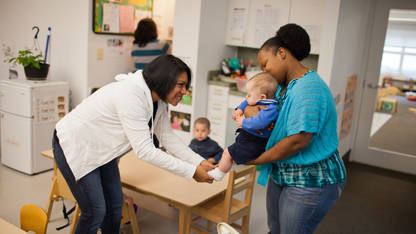Early Childhood Mental Health

As early experiences shape the architecture of the developing brain, they also lay the foundations of sound mental health. Disruptions to this developmental process can impair a child’s capacities for learning and relating to others — with lifelong implications. By improving children’s environments of relationships and experiences early in life, society can address many costly problems, including incarceration, homelessness, and the failure to complete high school.
Significant mental health problems can and do occur in young children. Children can show clear characteristics of anxiety disorders, attention-deficit/hyperactivity disorder, conduct disorder, depression, post traumatic stress disorder, and neurodevelopmental disabilities, such as autism, at a very early age. That said, young children respond to and process emotional experiences and traumatic events in ways that are very different from adults and older children. Consequently, diagnosis in early childhood can be much more difficult than it is in adults.
The interaction of genes and experience affects childhood mental health. Genes are not destiny. Our genes contain instructions that tell our bodies how to work, but the chemical “signature” of our environment can authorize or prevent those instructions from being carried out. The interaction between genetic predispositions and sustained, stress-inducing experiences early in life can lay an unstable foundation for mental health that endures well into the adult years.
